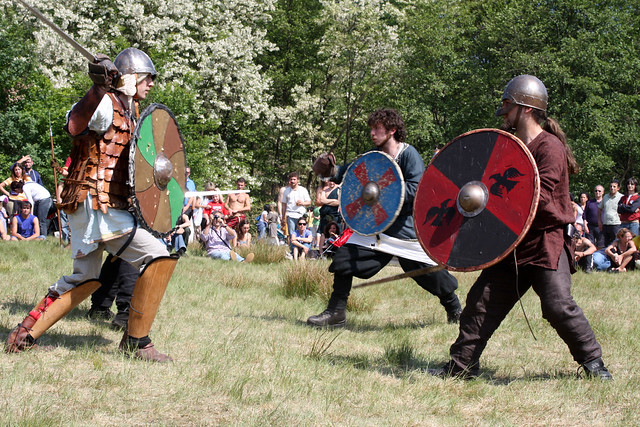Words for five and related things in Celtic languages:

| Proto-Celtic | *kʷenkʷe = five *kʷenkʷetos = fifth |
|---|---|
| Old Irish (Goídelc) | cóic [koːɡʲ] = five cóiced [ˈkoːɡʲeð] = fifth cóicer = five people, five things coíca = fifty |
| Middle Irish (Gaoidhealg) | cóic, cúic = five cóiced, cúced, coigid = fifth cóicer, cóicir, cuicir = five people/things cóic deac = fifteen coíca, coícad, cóic deich = fifty |
| Irish (Gaeilge) | cúig [kuːɟ] = five cúigiú [kuːˈɟuː/ˈkuːɟu] = fifth cúigear [ˈkuːɟəɾˠ] = five people/things cúige = one of five divisions of Ireland, province caoga = fifty cúigbhliantúil = five-yearly, quinquennial cúigchodach = fivefold, quintuple cúigréad = quintet |
| Scottish Gaelic (Gàidhlig) | còig [koːgʲ] = five còigeamh(5ᵐʰ) fifth (4ᵗʰ)) còignear [koːgʲn̪ʲər] = five (people) còigearan [koːgʲəran] = quintuplet còig-fillte = quintuple, fivefold caogad [kɯːgəd] = fifty |
| Manx (Gaelg) | queig [kwɛɡ] = five queigagh, queigoo = fifth queigad = fifty queigin, queig-lhiatteean = pentagon queigane = quintuplet queig-filley = quintuple, five-fold |
| Proto-Brythonic | *pɨmp [pɨmp] = five *pɨmped [pɘmˈpɛːd] = fifth |
| Gaulish | pimpe, pempe = five pimpetos = fifth |
| Old Welsh | pimp = five petguaret = fifth pimmunt = fifty |
| Middle Welsh (Kymraec) | pimp, pym(p), pvmp, pum(p) = five pimphet, pemhet, pimhed, pymhed, pymhet = fifth pymthec = fifteen pymwnt, pumhwnt, pemhwnt, pummwnt = fifty pvmplyc, pymplyg, pumplyg = quintuple, fivefold |
| Welsh (Cymraeg) | pump [pɨ̞mp/pɪmp] = five pumed [pɛdˈwɛrɨ̞ð] (5ed) = fifth pumplyg = quintuple, fivefold, folded five times pumpunt = five pounds, five-pound note, fiver pedwaraid = set of five, fivesome pumseiniol = pentatonic (music) |
| Middle Cornish (Cernewec) | pymp, pemp = five pympes = fifth pymthec, pemdhac = fifteen |
| Cornish (Kernewek) | pymp = five pympes, pempes = fifth pymthek, pemdhek = fifteen pympbys, pempbes = starfish (“five finger”) |
| Old Breton | pemp = five |
| Middle Breton (Brezonec) | pemp, puemb = five pempet, peempet, pempvet = fifth pempaat = to group into five pempkement = quintuple pempkementiñ = to quintuple pempkogneg = pentagon |
| Breton (Brezhoneg) | pemp [pɛmp/pɛ̃mp] = five pemp(v)et = fifth pemzek = fifteen pempad = quintet pempkorneg = pentagon |
Etymology: from Proto-Indo-European *pénkʷe (five) [source].
English words from the same roots include five, fifth, fifty, fifty, quintet, and words beginning with penta-, such as pentathlon and pentameter [source].
Sources: Wiktionary, Am Faclair Beag, Online Manx Dictionary, Teanglann.ie, eDIL – Electronic Dictionary of the Irish Language, In Dúil Bélrai English – Old Irish glossary, Geiriadur Prifysgol Cymru, Gerlyver Kernewek, Gerlyvyr Cernewec, Dictionaire Favereau, TermOfis, Le dictionnaire diachronique du breton, Geriafurch, English – ProtoCeltic WordList (PDF), Etymological Dictionary Of Proto Celtic










